Lionel Apetoh, PhD

I started my research career in Pr. Laurence Zitvogel’s laboratory (Paris, France) where I worked on tumor immunology. After completing my PhD work, I joined Pr. Vijay Kuchroo’s laboratory from 2008 to 2010 to gain further experience in understanding the molecular mechanisms leading to the differentiation of effector and regulatory T cells in autoimmune diseases and tumors. I returned to France in 2011 to set up a research team and I am now working as Research Associate Professor in Immunology at INSERM. My team aims to get greater insight into the molecular mechanisms that can endow CD4 T cells with anticancer properties to contemplate their use in anticancer adoptive T cell therapy. I am pleased to join the Kuchroo laboratory again as a Visiting Fellow to expand my knowledge on gene expression analyses and reinforce collaborations between France and the US.
Rocky Barilla
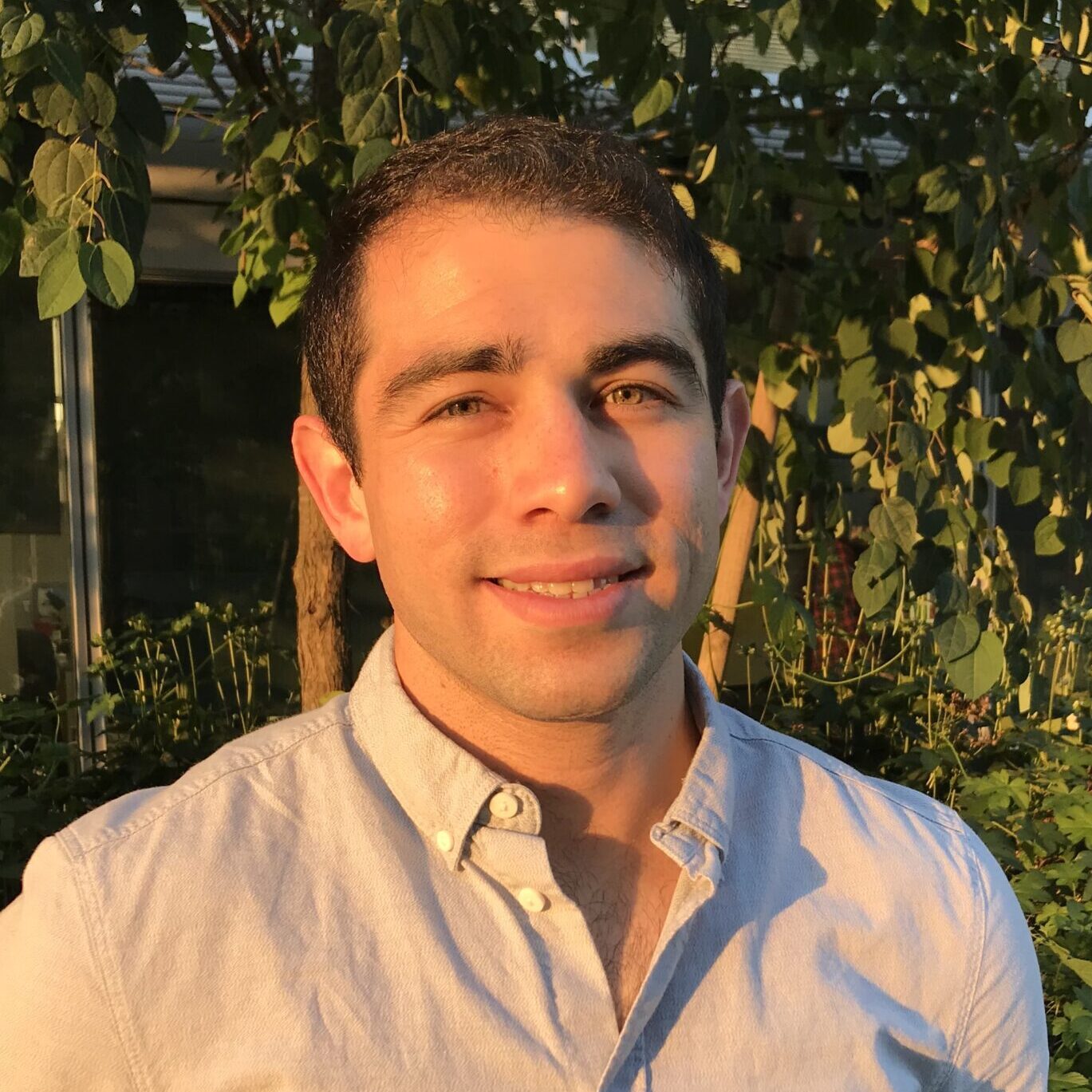
I was born in New York City and raised between Brooklyn, Long Island, and Hawaii. I was first exposed to biomedical research in 2008 during my undergraduate studies at Johns Hopkins University, investigating the functions of γ-secretase and BACE1 in Alzheimer’s Disease and Schizophrenia endophenotypes. After graduating in 2011, I returned to New York to work with Dr. George Miller at the NYU Langone School of Medicine. In my 5 years at NYU, I explored the immunological underpinnings of Pancreatic Cancer—studying dendritic cells, γδ T cells, necroptosis, and pattern-recognition—while contributing to research on pancreatitis, liver regeneration, and fatty liver disease. I began my Ph.D. studies at Harvard Immunology in 2016, focusing on the critical intersection of the immune and nervous systems. I joined the Kuchroo Lab in 2018, hoping to characterize the enteric neuron-lymphocyte dialectic and elucidate its role in gastrointestinal physiology and inflammatory control.
Lloyd Bod, PhD
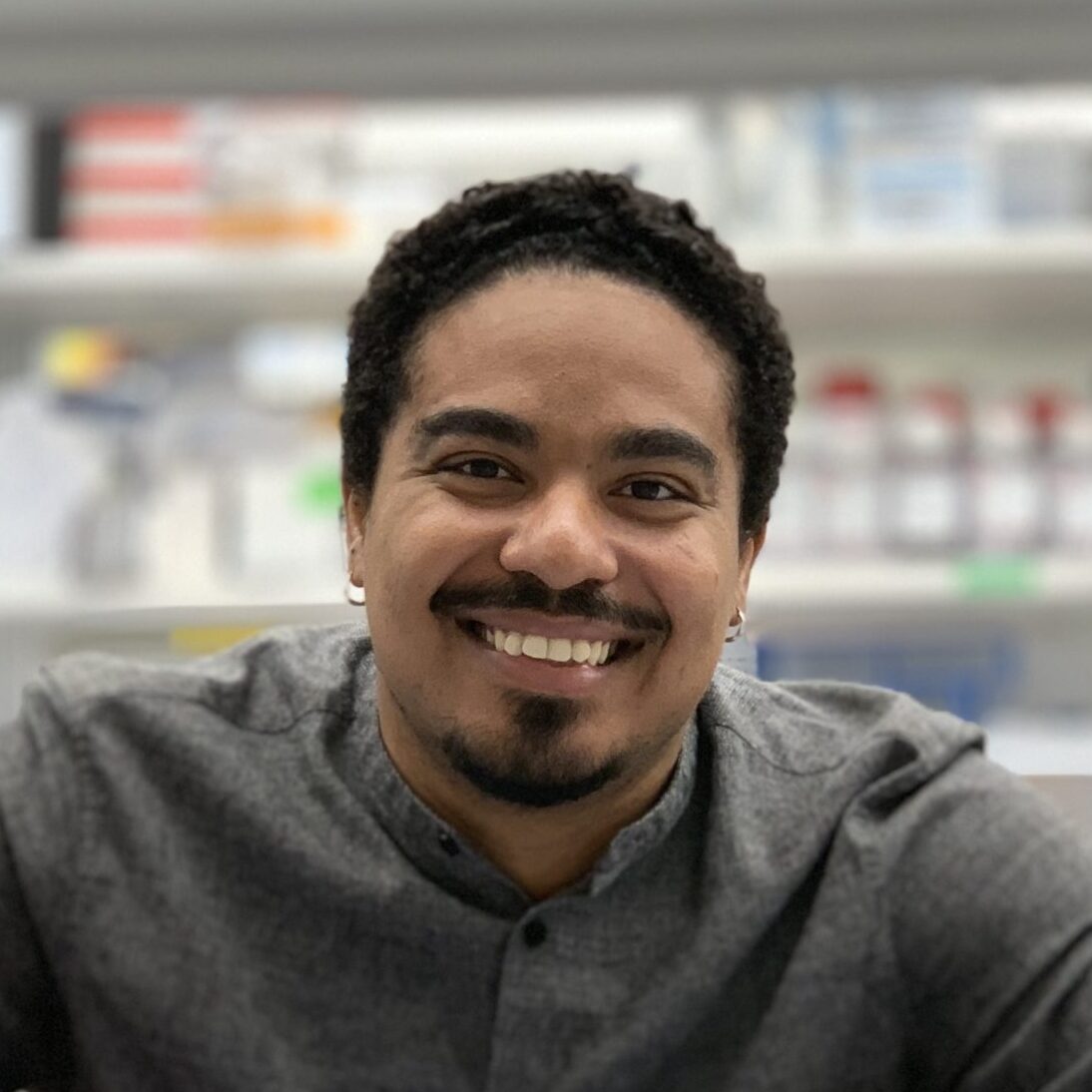
I grew up in Martinique, a beautiful island in the French West Indies. After leaving this paradise at 18 years old, I went to Paris to study at university. At the end of my Bachelor’s degree, I discovered Immunology and immediately fell in love. The complexity of this dynamic network deeply captivated me. After completing my studies, I began my Master’s at the Pierre and Marie Curie University, the “Ecole Normale Superieure” of Paris in Immunology, which confirmed my passion for the immune system and its application in diseases, such as cancer. I then completed my PhD thesis at the Cochin Institute, where I had the chance to learn about Melanoma immunology or B-cell, γδ T-cells, and the physiology of Tregs. I joined the Kuchroo Lab in September 2017 to further work on the dialogue between immune cells and tumors in order to better understand and optimize the angle of attack!
Hee Sun Choi, PhD
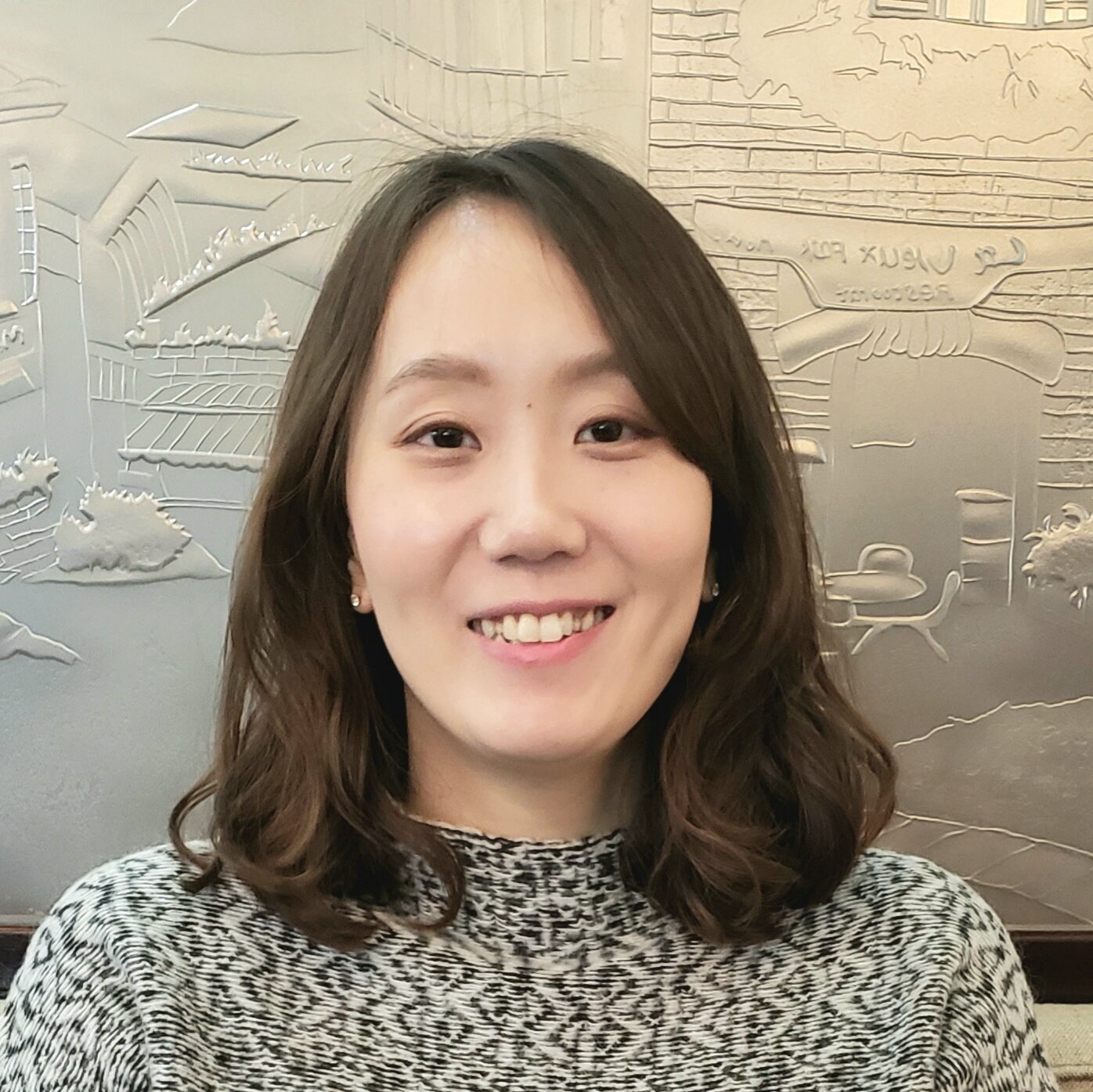
I grew up in Seoul, South Korea. I received my B.S. and M.S. in Biotechnology from Yonsei University in Seoul, South Korea. After completing my studies, I moved to the US to begin my Ph.D. studies in the Pathobiology Graduate Program at Johns Hopkins University School of Medicine. While there, I focused on studying the role of innate lymphoid cells (ILCs) in cardiac inflammation in Dr. Cihakova’s lab. After obtaining Ph.D., I joined the Kuchroo lab in 2020 as a postdoctoral fellow. I am interested in elucidating the role of ILCs in tissue inflammation and investigating how immune cells and tissue resident cells interact to regulate immunologic diseases.
Karen Dixon, PhD
I grew up in the countryside in Ireland in a small area called Boardsmill. I began my studies in Galway and finished in Dublin where I received a First Class Honours degree in Biomedical Science. Following that, I received a Marie-Curie fellowship and moved to Leiden, the Netherlands to complete my Ph.D. in Medicine (Immunology) at Leiden University. While there I worked on the regulation of Dendritic cell populations and the IL-12 family. After graduating in 2014, I began working in the Clinical Immunology department at the Mater Misericordiae University Hospital in Dublin. Encounters with patients suffering from a variety of immunological conditions from allergies and primary immunodeficiencies to autoimmune diseases such as MS and NMO motivated me to join the Kuchroo lab in 2016 as a Marie Curie Global Fellow. During my time here I hope to improve our understanding of the mechanisms driving these debilitating immune-mediated diseases.
Allen Ho, MD, PhD
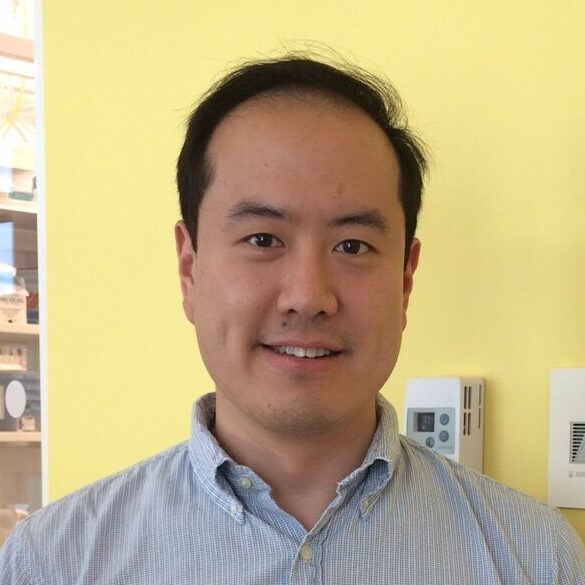
My research interests center on understanding the specific mechanisms that regulate inflammatory disorders. While completing my undergraduate studies at the University of Chicago, I worked with Tom Gajewski investigating T cell anergy as a negative regulator of anti-tumor immunity. For my graduate thesis work, while I obtained my MD/PhD, I examined the molecular and cellular contributions of IL-17 signaling to host defense against fungal infections in the laboratory of Sarah Gaffen. Following my medical school graduation, I began residency training in dermatology at the Harvard Combined Program. In addition to my clinical dermatology training, I joined the Kuchroo lab to work on understanding the molecular and cellular mechanisms that regulate T cell mediated tissue inflammation.
Yu Hou, PhD
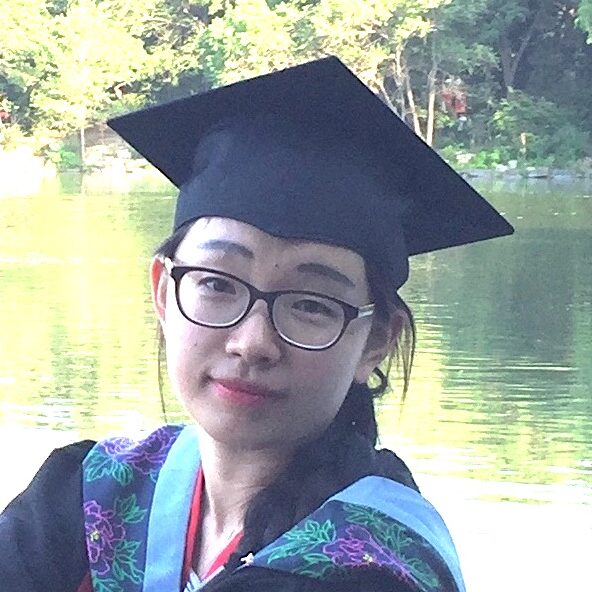
I grew up in Yingkou, a small city in the northeast of China. When I was 18 years old I went to Beijing to obtain my undergraduate degree from China Agricultural University in 2002. After that, I joined Dr. Fuchou Tang’s lab, one of the pioneers in revealing the molecular mechanisms during early embryonic development with single-cell high-throughput sequencing techniques. During my Ph.D. program, I mainly focused on exploring single-cell omic sequencing techniques and the application to human disease research. I joined Dr. Kuchroo’s lab in 2018 as a postdoc. I am interested in exploring the regulation network on multiple-omics in the regulation between functional and dysfunctional T cells.
Kimitoshi Kimura, MD, PhD
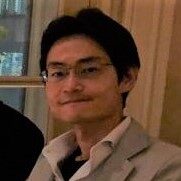
I was born and raised in Shiga, a prefecture known for the largest lake in Japan. After obtaining M.D. at Kyoto University, I worked as a neurologist for several years in tertiary hospitals. Through facing clinical problems of devastating neuro-immunological diseases, such as encephalitis, multiple sclerosis, and neuromyelitis optica, I became strongly interested in the precise pathogenesis and the expanding field of immunology. This led me to Dr. Takashi Yamamura’s Lab at National Center of Neurology and Psychiatry, Japan. I performed thorough analysis of exosomal miRNAs involved in immunological alteration in multiple sclerosis, and obtained Ph.D. with this work at Kyoto University. I believe that clarifying the complicated interaction of various cell types in the central nervous system and immune system has the key to solve the long-standing problems at bedside. Therefore, I joined the Kuchroo Lab in October 2019, hoping to cultivate our better understanding of molecular regulatory mechanism of neuroinflammation.
Harsha Krovi, PhD
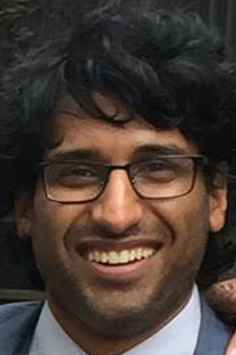
I grew up in suburban Massachusetts and attended the University of Virginia for my undergraduate studies. Subsequently, I worked as a research technician at the University of Arizona studying the TCR repertoires of unimmunized animals. This led me to pursue a PhD in Immunology from the University of Colorado Anschutz Medical Campus where I focused on the molecular mechanisms underpinning the TCR bias for MHC molecules. In the Kuchroo lab, I aim to understand how non-pathogenic TH17 cells are reprogrammed to differentiate into pathogenic TH17 cells during chronic inflammation.
Yoon-Chul Kye, PhD

I was born and grew up in Seoul, South Korea. After I finished B.Sc. in animal biotechnology in Seoul National University, I decided to join M.Sc.-Ph.D incorporated program in the same university under Dr. Cheol-Heui Yun’s instruction. During this program, I had chances to work in various research institutes including International Vaccine Institute (IVI) or Institute for Basic Science (IBS). In IVI, I have worked on the development of subunit vaccine and adjuvant against respiratory infections. For my Ph.D. thesis, I have studied on how immune system, especially naïve T cells, regulates their homeostasis, co-advised by Dr. Jae-Ho Cho in IBS. These experiences led to raise questions on how to regulate the immune cells in the severe disease like tumor or autoimmune diseases. I joined the Kuchroo Lab in March 2020 as a postdoctoral fellow to work on understanding molecular mechanism of B cells in inflammatory diseases.
Conner Lambden
I grew up in Morrison, CO where I competed in Mogul Skiing and played soccer throughout High School. For my undergraduate degree, I studied Immunology/CS at UC Berkeley where I became fascinated with the intersection of biological and computational systems. I joined the Kuchroo lab in Summer of 2018. I am excited to explore the intricate connections between information theory, RNA expression, and adaptive immunity.
Weike Pei, PhD
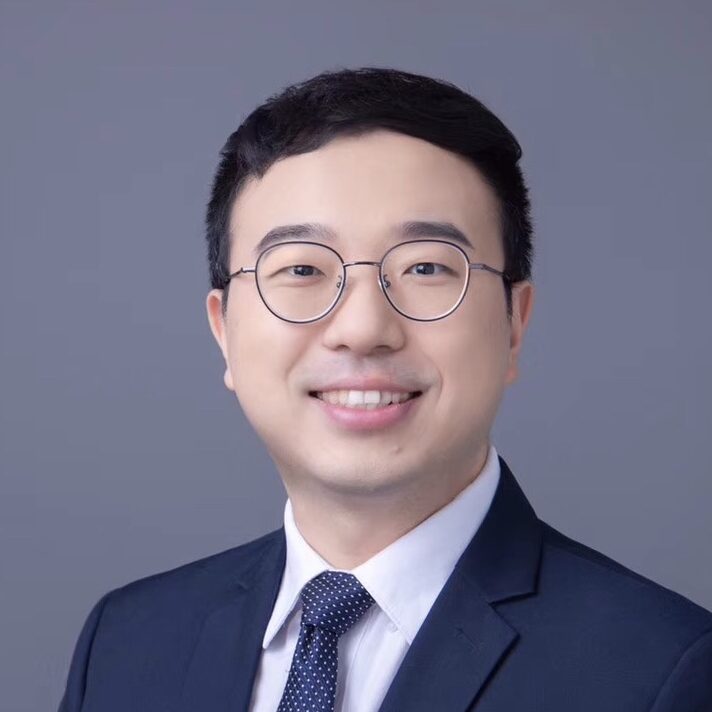
I was born and raised in Beijing, China. My interest in science was sparked by the famous Discovery Channel in my childhood when the Internet did not exist. I owe my fascination in biomedical research to Dr. Hans-Reimer Rodewald, my PhD supervisor, who introduced me to developmental immunology and motivated me to work on risky but very important projects. During my PhD training at the German Cancer Research Center, I developed a strong interest in devising novel experimental systems with synthetic biology approaches, leading to the establishment of new techniques for in situ cell tagging and cell fate mapping under homeostasis and disease. After my PhD, I decided to become a hardcore immunologist and joined the Kuchroo lab in 2020 to broaden my understanding of the interaction between the immune system and tumor. Currently, I am working on the identification of a new class of checkpoint molecules for development of novel cancer immunotherapy without autoimmune side effects.
Vinee Purohit, DVM, PhD
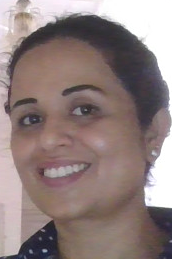
I grew up in India and completed my degree in Veterinary Medicine from the College of Veterinary and Animal Sciences, Bikaner, India. Following this, I received a Ph.D. in Cancer Metabolism from the Department of Pathology and Microbiology, University of Nebraska Medical Center, Omaha, NE. Subsequently, as a Postdoc fellow in University of Michigan Medical Center and New York University Langone Health (lab relocation), I studied redox biology and metabolism in cancer. For this work, I was awarded the Department of Defense Horizon Award Postdoctoral grant (2017-2019). My long-term interest, since veterinary school, has been to study immunology. Hence, I joined the Kuchroo Lab, which as at the forefront of immunology research, to broaden my research expertise and to deepen my understanding of the immunology of chronic diseases like cancer.
Brianna Malaya Regan
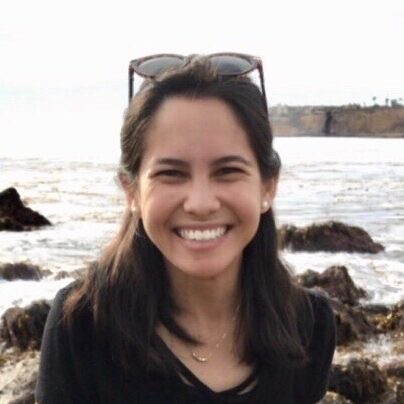
Brianna Regan is the new Technical Research Assistant in the Kuchroo Lab from Long Beach, CA. She graduated from Boston University in 2019 with degrees in both Biology (Specialization in Cellular Biology, Molecular Biology, and Genetics) and English. Before holding this position, Brianna conducted research in a marine population genomics lab, studying thermotolerance in coral species, under Dr. Sarah Davies. Brianna plans to pursue a Masters, and eventually a PhD, in Molecular Biology in order to continue a career in biology research. Outside of work Brianna enjoys rock climbing, knitting, baking, and trivia nights at Lamplighter.
Alexandra Schnell
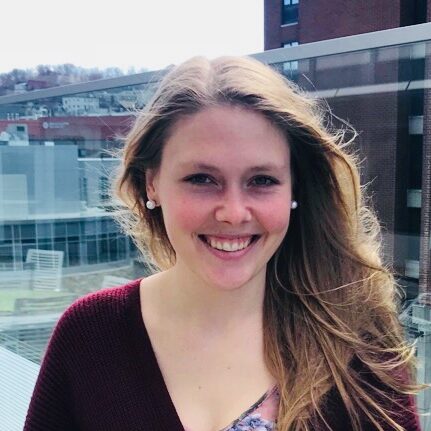
I was born and raised in Kelkheim, a small town in Germany. After finishing high school, I moved to Tuebingen, Germany, where I received my Bachelor’s degree in Biology. I continued my education with a Masters in Molecular Biosciences- Major “Cancer biology” at the German Cancer Research Center and Ruprecht-Karls University in Heidelberg. Throughout the course of my studies, I developed a strong interest in the immune system and its regulation in the context of autoimmunity and tolerance. I, therefore, joined the Harvard Immunology PhD program in 2015. Since October 2016, I have been a member of the Kuchroo lab where I am studying intestinal mucosa- adaptive immune system interactions in the context of extra-intestinal autoimmune disease.
Helene Stroh
I received a Bachelor of Arts in Biology from the University of Colorado. After graduation, I joined the Division of Genetics at the National Jewish Hospital and Research Center in Denver. My move from Colorado to Boston was the impetus to a long and productive career in the research field, beginning with Boston Children’s Hospital and later to include Tufts Medical Center, Brigham and Women’s Hospital, Massachusetts General Hospital, and the biotech sector.
In the Kuchroo lab, I bring this experience to the position of Lab Manager providing coordination of the daily operations within the lab in addition to overseeing adherence to lab standards and compliance, as well as performing administrative duties relative to the budget, animal protocols, and personnel.
Ayshwarya Subramanian, PhD
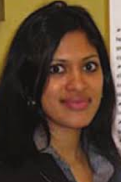
I am a computational biologist broadly interested in understanding principles of heterogeneity underlying human physiology in homeostasis and disease. During my PhD, I developed methods for inferring tumor heterogeneity from data measuring DNA copy number. My recent work has involved using single-cell transcriptomics to map cell atlases of various human tissues, with a focus on kidney disease and COVID-19. At the Kuchroo Lab, I’m interested in dissecting the building blocks of inter- and intracellular circuits within heterogeneous immune cell populations by leveraging in vivo and in vitro cellular perturbation technologies.
Ruihan Tang, MD, PhD
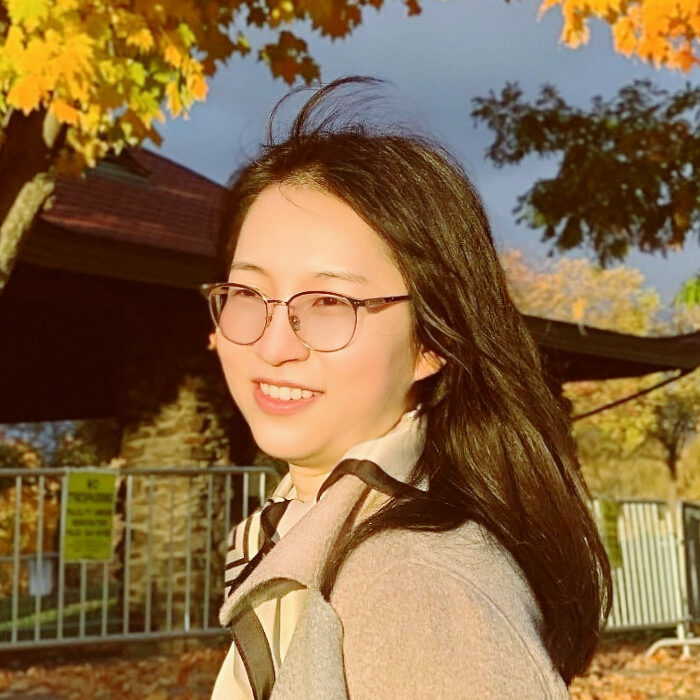
I grew up in Guangzhou, China. The city is known as the City of Flowers and Foodie’s Paradise. I received my medical degree from Zhongshan Medical School and the First Affiliated Hospital of Sun Yat-sen University, where I was trained as a gastroenterologist. The clinical training in the Inflammatory Bowel Diseases Center greatly boosted my interest in Immunology. I joined the Kuchroo Lab in 2015 to complete my Ph.D. thesis. After obtaining my Ph.D., I continue my research on immune tolerance in the context of autoimmune diseases and cancer.
Antonia Wallrapp, PhD
I grew up in Germany and studied Molecular Medicine at the Friedrich-Alexander University Erlangen-Nuremberg, Germany. Following my great interest in Immunology, I conducted my Master’s thesis in B cell development and plasma cell differentiation at the laboratory of Dr. Hans-Martin Jäck. After obtaining my Master of Science degree in Molecular Medicine, I joined the Kuchroo lab in 2015 as a graduate student, jointly supervised by Dr. Vijay Kuchroo and Dr. Hans-Martin Jäck. My current research addresses the question of how molecular and cellular pathways regulate the development of tissue inflammation and is supported by a PhD fellowship from the Boehringer Ingelheim Fonds.
Yochai Wolf, PhD
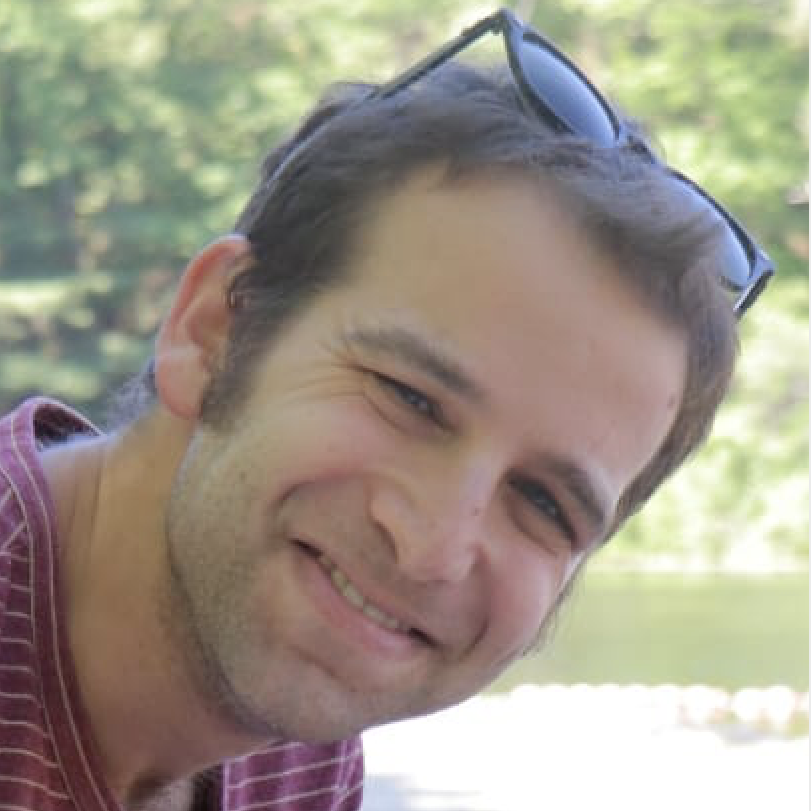
My main scientific goal is to study the interrelations between inflammation and cancer. I have been working in life science laboratories for the past 12 years, specifically in immunology. Born and raised in Israel, I did my B.Sc and M.Sc at the Hebrew University in Jerusalem (2005-2010). Between 2010-2015, I did my PhD at the Weizmann Institute of Science and specialized in myeloid cell biology. Following the PhD, I started in 2016 a first post doc at the Weizmann Institute, switching to tumor immunology, mainly focusing on melanoma. In autumn 2018, I moved with my family to the US and started a second post doc at Dr. Kuchroo’s lab, working on anti-tumor immunity, inflammation, and co-inhibitory molecules. Outside the lab I also write and edit popular science articles, raise two wonderful (and highly demanding) kids, and compose music in my (very little) free time.
Junrong Xia

I have more than 20 years of laboratory experience within the Harvard Medical School community (1993-2004 in Dr. Michael Carroll’s lab; 2004-2011 in Dr. Klaus Rajewsky’s lab; and 2012-present in Dr. Vijay Kuchroo’s lab). My research skills and interests include: genotyping mice with PCR and FACSCalibur, labeling DNA probe with 32P-dCTP for hybridization by Southern blot membranes, and culturing tumor cells. My personal interests include cooking with my husband and daughter, catching up with family over social media, and traveling.
Huiyuan Zhang
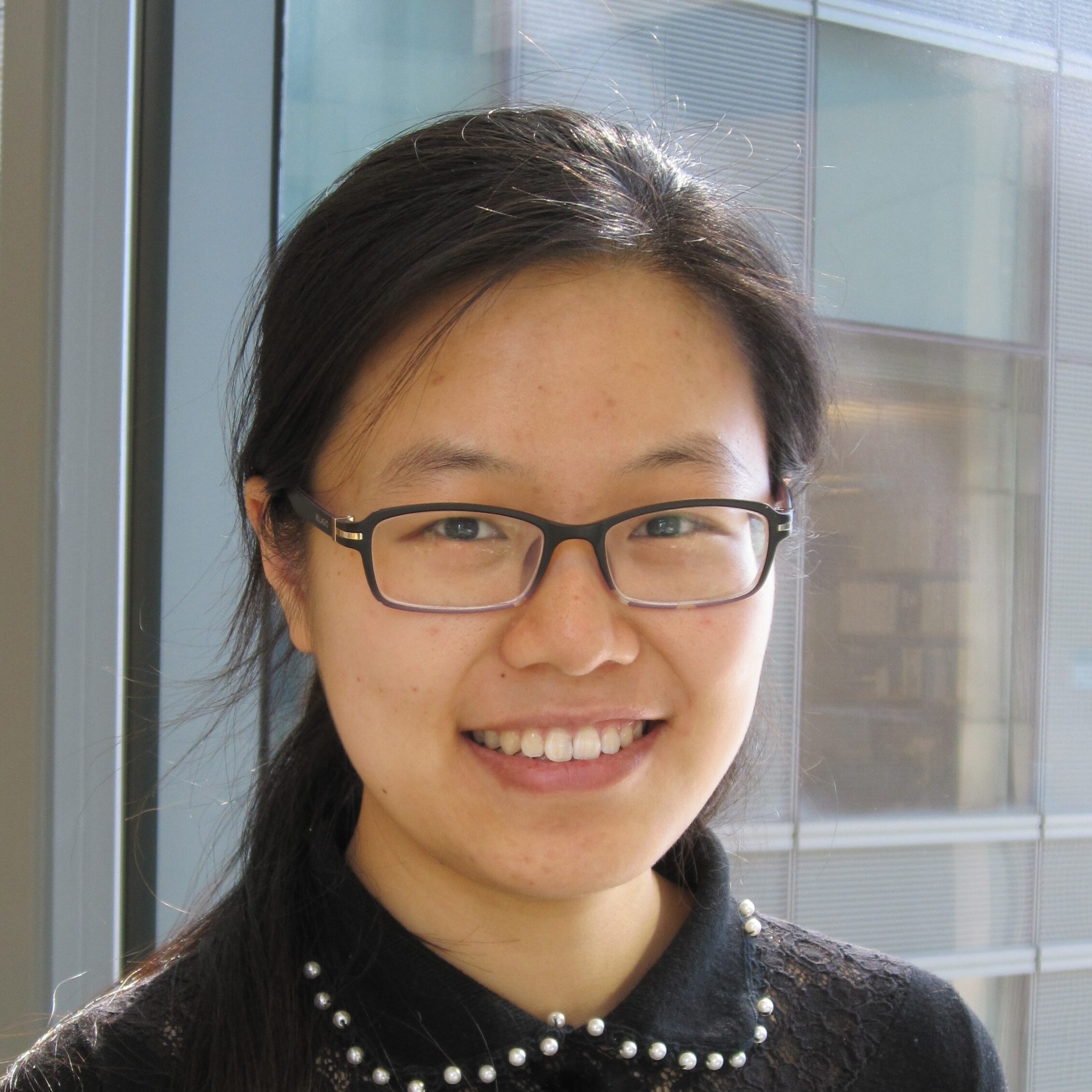
I was born and raised in Yantai, a city near the east coast of China. I received my undergraduate degree from China Agricultural University, where I had the good fortune to work with Dr. Bin Wang on biomarker studies for the prediction and stratification of human Type 1 diabetes. Later research experience at Dr. Wanli Liu’s lab at Tsinghua University furthered my interest in Immunology and encouraged me to further pursue a PhD in this field. In the fall of 2014, I joined Dr. Kuchroo’s lab as a graduate student in the Immunology Program at Harvard Medical School. I have a keen interest in how dysfunction and misregulation of T cells contribute to diseases such as autoimmunity and cancer. My current focus is on regulatory T cells.
Rongjia Zhang
I was born and bred in Harbin, a sophisticated and beautiful city in China where winter spans for four months each year (and I do love winters). I came to California for college and studied chemistry at UCLA, where I investigated polymer synthesis and reaction optimization. After receiving my B.S., I went to Houston to work as a research assistant in Dr. Michael Wang’s lab at M.D. Anderson Cancer Center, studying the role of PLK-1 and PI3K-Akt pathways in mantle cell lymphoma. This has led me to pursue my current Master of Medical Science studies in immunology at Harvard Medical School. I joined Kuchroo lab in the summer of 2020, and I aim to have a deeper understanding of the cellular interaction and molecular mechanisms of autoimmune diseases and cancer.